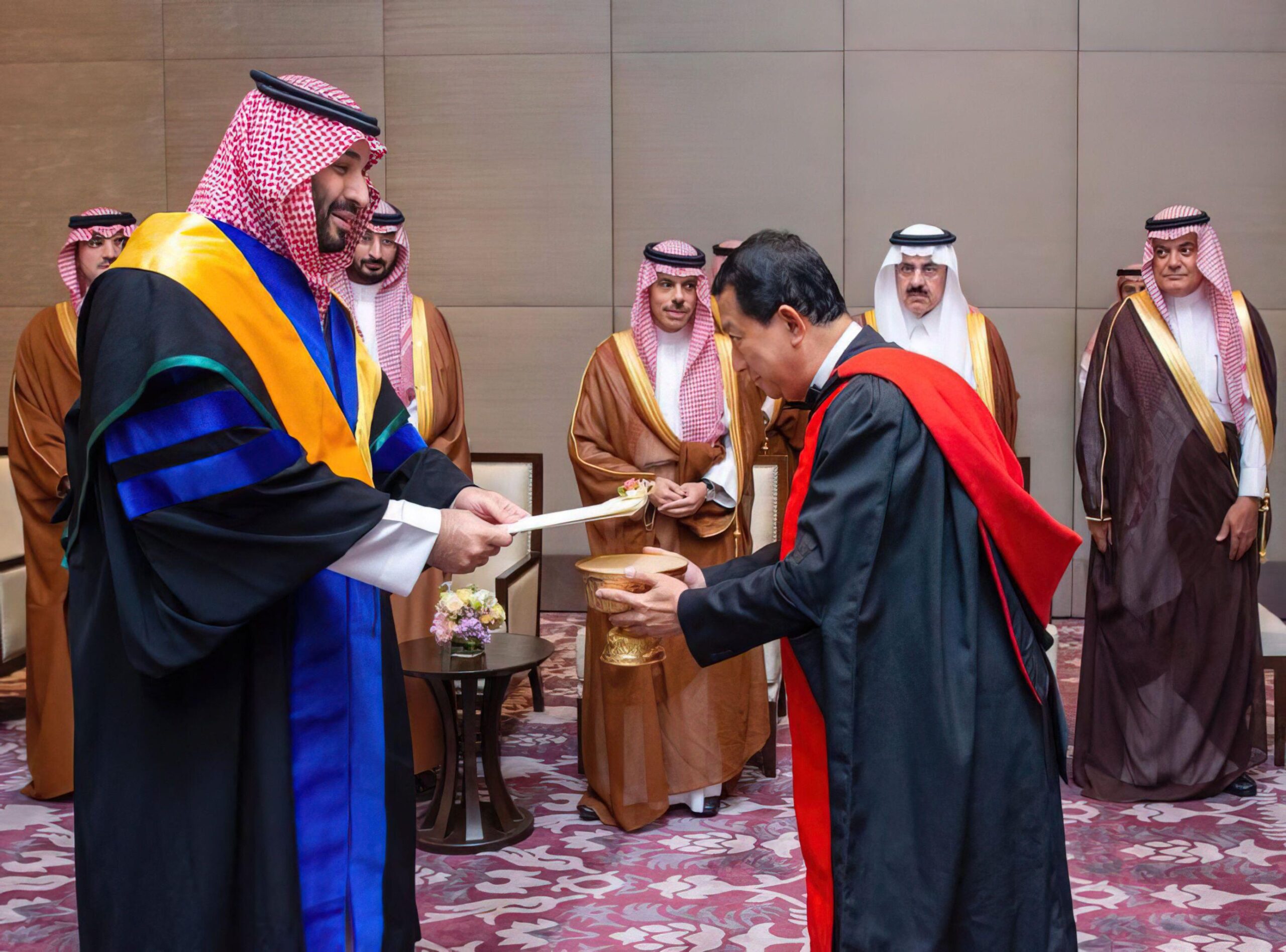On November 20th, Saudi Crown Prince Mohamed bin Salman attended the Asia Pacific Economic Cooperation (APEC) summit in Bangkok as a guest of honor. For Riyadh, his appearance was indicative of the kingdom’s increasingly prominent presence in multilateral forums, marking a significant step in the Saudis’ efforts to deepen their relationships with key Asian countries. But it was more than simply a conference cameo. Importantly , it constituted a development that was decades in the making: the dramatic symbolic marking of the end of a 30 year diplomatic rift between Saudi Arabia and Thailand.
Saudi Arabia and Thailand first established diplomatic ties in 1957, exchanging resident ambassadors less than a decade later. This, by most accounts, broadly untroubled and mutually beneficial relationship was brought to dramatic tensions in 1989, when a Thai gardener robbed over ten million dollars’ worth of jewelry from the home of his employer, Prince Faisal bin Fahd, the son of the then-reigning Saudi monarch. Rushing back home with the loot, the thief attempted to sell his ill-begotten hoard, finding himself apprehended by Thai authorities after they were alerted by the Saudis about the theft.
The imbroglio, however, didn’t simply end there. The alleged returned jewels later turned out to be fakes. Efforts to investigate the issue coincided with a series of murders that saw four Saudi citizens—three diplomats and a businessman—killed in mysterious situations. Even the Saudi charge d’affairs in Bangkok at the time, in a 1994 interview with The Independent, was moved to compare the issue with an Agatha Christie novel. Within certain circles, the events around the nascence of the crisis are occasionally recited almost as a fable—a high-stakes lesson of how a series of spiraling, seemingly improbable, events can throw off otherwise mutually beneficial ties for years.
The tensions manifested themselves in a variety of ways. The number of Thai guest workers in Saudi Arabia shrunk from over a hundred thousand to as low as hundreds; a loss of billions of dollars in remittances for Thailand. Compared to their Gulf neighbors, a virtual trickle of Saudis traveled to the tourism hotspots of Thailand in adhering to official advice to avoid the country. Don Mueang and later, Suvarnabhumi airport, were bypassed as a hub for travel to the kingdom in favor of neighboring airports in Jakarta and Kuala Lumpur; the latter of which emerged as a key regional hub for other Gulf carriers. Investment between the two countries was deeply difficult due to Saudi restrictions. Thai restaurants remain a rarity even in Saudi Arabia’s most cosmopolitan cities, with the few in Riyadh and Jeddah often run by Filipinos.
It’s no surprise, then, that efforts continued to resolve the dispute over the years. . In some regards, the tentative fruits of said efforts -largely, an increase in bilateral trade and easing of Hajj and Umra visas for Thai pilgrims – only served to underline the importance of the relationship, particularly for Thailand, which in recent years had come to count on Saudi Arabia as one of their most important Arab trade partners.
The question, of course, rests with why the breakthrough unfolded now. In some regards, it’s a matching of mutual interests. Some Thai commentators have asserted that the resolution of the crisis constitutes a virtual boon for Thai Prime Minister Prayut Chan-o-cha. The target of sustained protests over the course of 2021, Chan-o-cha managed to nab a major success that eluded his predecessors. That being said, Thai diplomatic contacts have stressed that the development is ultimately built upon more than half a decade of discrete Thai diplomacy spearheaded in part by Foreign Minister Don Pramudwinai amidst a broader, more pragmatic posturing.
For the Saudis, restoring its relationship with Thailand fits into a wider policy of bolstering multilateral ties, particularly in Asia. In some regards, according to Saudi contacts, the reconciliation had been brewing since the reign of King Abdullah in underlining the extent that both sides were eager for the rift to end. This broader impetus was given a renewed emphasis by the current Saudi leadership keen to shift towards a broader diplomatic projection and a less oil-focused economy. In both regards, Thailand presents a key opportunity. On the first hand, Bangkok’s position as a hub for diplomacy in Southeast Asia grants the kingdom a greater opportunity to engage with a variety of regional forums—as epitomised by the Crown Prince’s recent visit to APEC. Renewed ties to Bangkok also present a diverse array of potential opportunities. Access to Thai airports grants Saudi Airlines a means of taking advantage of a key air hub; greater ease for hiring Thai nationals presents an opportunity to diversify its expatriate labor force. Even tourism is a two-way street – and one that, judging by the renewed frequency of direct Saudi Arabia to Bangkok flights – has already taken off, while nascent coordination efforts have covered everything from knowledge sharing on renewable energy to increasing cultural and athletic exchanges.
It’s no surprise, then, that Mohamed bin Salman’s visit was met with a slew of economically-focused bilateral agreements, building off of similar economic outreach efforts earlier this year, with the focus on private sector partnerships in both countries underlining the extent that the aim is to strengthen both official and unofficial ties. While there has been some criticism from Thais regarding human rights concerns, both sides are deeply optimistic regarding the future of the relationship. In a matter of months, it would appear, Thai-Saudi relations have been transformed from troubled tensions to a key node of cooperation; returning ties between the two countries to what one could argue is their natural state.
The views expressed in the Near East Policy Forum are those of the authors and do not represent the views of the Near East Policy Forum or any of its partner organisations.




